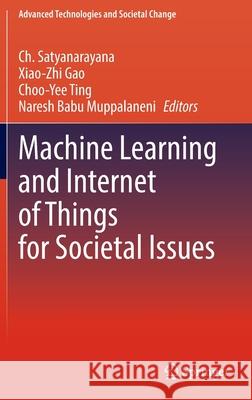Machine Learning and Internet of Things for Societal Issues » książka
topmenu
Machine Learning and Internet of Things for Societal Issues
ISBN-13: 9789811650895 / Angielski / Twarda / 2022 / 176 str.
Kategorie:
Kategorie BISAC:
Wydawca:
Springer
Seria wydawnicza:
Język:
Angielski
ISBN-13:
9789811650895
Rok wydania:
2022
Wydanie:
2021
Numer serii:
000445208
Ilość stron:
176
Waga:
0.42 kg
Wymiary:
23.39 x 15.6 x 1.12
Oprawa:
Twarda
Wolumenów:
01
Dodatkowe informacje:
Wydanie ilustrowane











